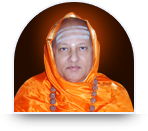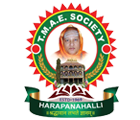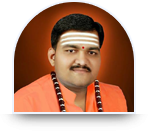
Vision
To produce creative, innovative, competent and ethical engineers who can lead in the ever-changing world of electronics & communication technologies.
Mission
- To impart Quality Technical Education in diploma electronics and communication engineering.
- To develop practical experience in learning and involve in continuous industry interaction and participation.
- To impart social, ethical values & leadership qualities in students through value based system of education.
Diploma in Electronics & Communication Engineering
This is a well established program that focuses on Electronics and various Communication Systems and Technologies. The curriculum covers fundamentals of Digital, Analog, Data Communication, Networking, Industrial Automation, PLC Systems, VHDL Programming, and Embedded Technology. It develops both technical and management skills among students. This course mainly helps to enable students to understand the fundamental concepts of engineering with the emphasis on the most relevant to Electronics & Communication Engineering. Electronics & Communication Diploma holders will develop necessary skills through practical design and fabrication and product testing using simulation and synthesis tools. The Electronics Diploma holders can take up responsible positions in the rapidly growing Electronic industries.
Course Assessment
Student performance are assessed through internal assessments, activity and assignment reports, seminars & lab records. The final diploma award is based on both Continuous Internal Evaluation and Semesters End Examinations. The students in the final year has undergo Internship Training or carryout Project Work considering live problems of the industry and is assessed by Practical Examination at the end of sixth semester.
Awarding Certificate
Department of Collegiate and Technical Education, Government of Karnataka will award the final diploma certificate for the students who completes their Diploma Course successfully.
Course Duration
The course is of three years (six semesters) and the students should attend the course full time.
Career Opportunities
Electronics and Communication industries are growing rapidly and diploma holders can have wide range of career opportunities to choose. E & C Diploma holders can work in various fields such Software and Hardware Industries, Device manufacturers, Automation & Robotics Industries, Telecom specialists, Power plants, Defense establishments and R&D organizations, Marketing and large public sectors.
Program Outcomes (PO's)
| PO1 | Basic and Discipline specific knowledge: Apply knowledge of basic mathematics. Science and engineering fundamentals and engineering specialization to solve the engineering problems. |
| PO2 | Problem analysis: Identify and analyze well-defined engineering problems using codified methods. |
| PO3 | Design/development of solutions: Design solutions for well-defined technical problems and assist with the design of systems components or processes to meet specified needs. |
| PO4 | Engineering Tools, Experimentation and Testing : Apply modern engineering tools and appropriate technique to conduct standard tests and measurements. |
| PO5 | Engineering practices for society, sustainability and environment: Apply appropriate technology in context of society, sustainability, environment and ethical practices. |
| PO6 | Project Management: Use engineering management principles individually, as a team member or a leader to manage projects and effectively communicate about well-defined engineering activities. |
| PO7 | Life-long learning: Ability to analyze individual needs and engage in updating in the context of technological changes. |
Program Specific Outcomes (PSO’s)
| PSO1 | Apply principles of mathematics, communication, automation and logic control to analyze different types of signals and switching operations. |
| PSO2 | Analyze, Synthesize the analog & digital circuits & to adapt for rapid changes in tools and technology through life-long learning. |
| PSO3 | Design, simulate and fabricate PCB using EDA tools for Electronics & Communication, Electrical circuits, and interface through programming. |
Program Educational Objectives (PEO's)
| PEO1 | Demonstrate, Update and adapt knowledge in the area of electronics and communication engineering and the allied fields. |
| PEO2 | Propose solutions for the core industry in the ever changing global enterprise with ethical practices. |
| PEO3 | Develop leadership qualities and succeed in their chosen career path, in industry or public service through engineering ability, life skills and multidisciplinary skill set acquired. |
| PEO4 | Pursue higher education institutes of national level |
Teaching Staff
Name |
University |
Area of |
Current |
Initial Date |
Association |
Dr. H K Shankarananda |
M. Tech, Ph.D |
Ph. D in |
HOD |
09/03/1992 |
Regular |
Sri. N Mahesh Kumar |
M. Tech |
VLSI Design & |
Selection |
14/07/1997 |
Regular |
Sri. G Chandrashekar |
B.E. |
Comp. |
Selection |
13/07/1998 |
Regular |
Sri. N Sadanandappa |
B.E. |
E & CE |
Selection |
16/07/1998 |
Regular |
Smt. Rekha M |
B.E. |
E & CE |
Selection |
15/11/2001 |
Regular |
Sri. M Chandrakumar |
B.E. |
E & CE |
Lecturer |
01/02/2012 |
Regular |
Sri Manjunathan S |
M.Tech. |
Digital Electronics |
Lecturer |
01/07/2022 |
Regular |


